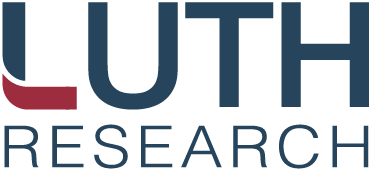Don’t fall into this trap: You’re a successful business, and in your mind, you feel whatever you’re doing is working, so why change? Believing you can continue getting the same results using the same exact process is a flawed way of thinking.
Remember Kodak? They were one of the major players in the photography space for many years. But not anymore. Why? Because they kept doing business the usual way and were beaten by the digital revolution.
The result: The company went bust, filed for bankruptcy and customers forgot about them. Fujifilm, one of Kodak’s biggest competitors, took a different approach: They sought ways to apply their film expertise within the emerging digital age. Today, Fujifilm is still going strong.
Timing is everything.
In the early 1970s, Kodak’s researchers came up with a digital camera. However, they neither saw nor seized the product’s potential. The same goes for research. If you’re not innovating your market research, you speak to the same people via the same old surveys — you’ll quickly fall behind.
Role of Market Research
Market research helps reduce the risk of making important business decisions and solving problems. There are different types of market research to conduct to identify and solve business questions and challenges. Here are a few of the main ones and when to use them:
- Brand research: Used at each stage of the business lifecycle. This research helps you create and manage your brand/identity.
- Competitive analysis: Used when you’re starting a business, moving to new markets, or doing business health checks. It allows you to assess the competition and gives you the impetus to gain a competitive advantage.
- Campaign effectiveness: Used when you need to spend your advertising budget effectively. It evaluates whether your advertising messages reach the right audience and deliver the right results.
- Consumer insights: Used to anticipate customer needs, solve business challenges, personalize marketing, and spark innovation. It reveals why consumers behave as they do so you can get insights to meet your business goals.
- Customer segmentation: Used when you’re ready to give consumers individualized experiences. The aim is to divide customers or markets into personas or smaller groups with similar characteristics for targeted marketing purposes.
- Product development: Used to minimize the risk of new products or changes going bust as you enter the market. This kind of research informs the entire product creation and improvement process and bringing it to market.
How do you choose the type of market research for your company? Know your business goals. Ask what business question or challenge you’re trying to address and then select the appropriate market research methods to get results.
When to Use Professional Research in Your Business
If you’re already doing market research and want to take it to the next level, you can use digital behavior tracking. Let’s go back to our example of Kodak and Fujifilm. Fujifilm’s decision to understand consumer behavior and adjust its market strategy created more opportunities to increase revenue. Had Kodak invested in digital tracking, they’d have easily tracked their customers to understand their purchase decisions. Digital tracking:
- Shows customers’ habits online and where they are in the buying journey
- Gives you a better idea about how your audience finds your product or service and makes purchases
- Helps discover what customers are interested in when it comes to your product
- Provides insights that let you allocate resources, plan accordingly, serve the right ads at the right time, and target more customers
- Provides relevant information for personalizing and improving the customers’ shopping experience
Not sure how to get started with Digital Tracking? Luth Research can help with that. Our proprietary technology captures behavior-based data insights from consumers’ devices and integrates this with survey and qualitative research. This way, you can get accurate, granular insights and uncover why consumers behave as they do. Contact us today to learn more about our digital tracking solutions used to uncover valuable information more efficiently.


